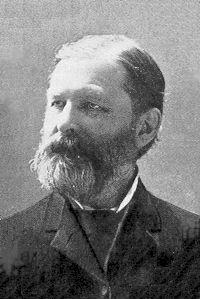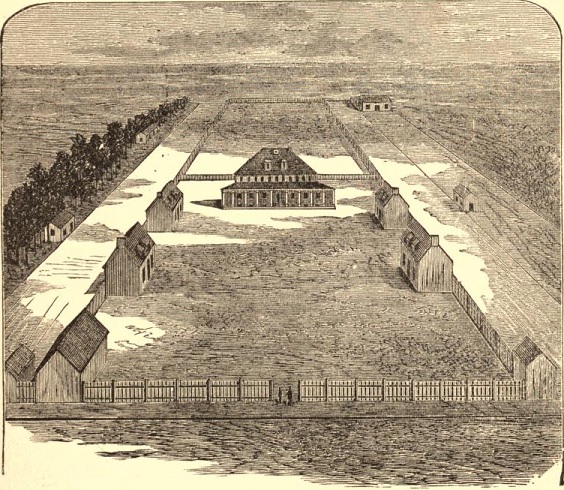The Importance of Vision
 How do you make an appeal for raising money? Here I am talking about the tone and manner of the appeal. I have heard of ministers who have an accusing, belligerent, almost hectoring tone, accusing people of neglecting to support the minister’s pet project. That is rarely going to be fruitful. Alternatively, others can adopt an almost apologetic manner of speech, forgetting that here is a wonderful opportunity to challenge people about their Christian priorities.
How do you make an appeal for raising money? Here I am talking about the tone and manner of the appeal. I have heard of ministers who have an accusing, belligerent, almost hectoring tone, accusing people of neglecting to support the minister’s pet project. That is rarely going to be fruitful. Alternatively, others can adopt an almost apologetic manner of speech, forgetting that here is a wonderful opportunity to challenge people about their Christian priorities.
I was moved to ponder this issue on Easter Sunday as I listened to the singing at online church. My mind was taken back to the Easter services at the Methodist church of my youth where we would sing the famous hymn, Christ Arose. I was always thrilled by the triumphant chorus that began.
Up from the grave he arose with a mighty triumph o’er his foes.
I decided to research its author and I found it had been written by an American Baptist minister Robert Lowry (1826-1899). Lowry was gifted musically and not only wrote hymns but was very active in producing and editing hymnals. Among his compositions are the famous hymns Nothing But the Blood of Jesus and Shall We Gather at the River.
Curiously the writing of Shall We Gather has a distinct resonance with our Covid-19 worries of today. In the summer of 1864 Lowry was ministering in Brooklyn. It was frightfully hot and the city was being struck by a typhus/typhoid plague. New York is suffering terribly during this current crisis but it is salutary to remember that it was regularly afflicted by plagues in the C19th and early C20th. The plague of 1864, while dwarfed by the Spanish Flu of 1918 on the city, was still quite severe. As he was severely stricken by the heat, Lowry thought of the river of the water of life that flows from the throne of God in Revelation 22 and penned his famous hymn.
Despite his musical talents, Lowry far more saw his ministry as preaching and he was very highly regarded for powerful sermons. In 1869, at the invitation of Dr Loomis, President of the University at Lewisburg, Robert moved with his family to take up the position of Professor of Rhetoric and Pastor of the Baptist Church. Writing in the Union County Historical Society, Dan McDavitt records the following.
The chapel of the new church was dedicated in February 1869, the entire church in June 1870. The financial report indicated the new construction had a debt of $20,000. The Centennial History of Bucknell University indicates the “Rev. Dr. Robert Lowry, then Professor of Literature in the University (and beyond doubt one of the world’s great orators as well as being its leading hymn writer) …”in his sweetly persuasive way…..asked the congregation to subscribe, then and there, half of the remaining $20,000.” The congregation was “small and not too prosperous,” but “so moving were Dr. Lowry’s remarks that before the meeting was closed the entire $10,000 he asked for was subscribed”.
What caught my attention was the’ sweetly persuasive’ way in which Lowry addressed the congregation. Yes, he was a wonderfully moving preacher, but it would be incorrect to think that he had somehow manipulated the people. Rather he was a genuine Christian of great integrity and the wonderful devotional words of his hymns were merely an outward expression of his inner character.
So how did Lowry raise resources? He was obviously direct. $10,000 was needed and he brought that need before the congregation. But he did it in a ‘sweet and persuasive’ way.
For more on this topic of raising resources for a church building see my book Giving Generously where I discuss having a gracious way to ask.



 It is a truth universally acknowledged that money follows vision. (I apologize to Jane Austen)
It is a truth universally acknowledged that money follows vision. (I apologize to Jane Austen) In my book Giving Generously I advocate a five to six week preaching series as the centre point of an annual Commitment series to raise resources for ministry in the local church. When I first began this process I wondered how I could produce fresh sermons on this topic year after year. In fact I found it surprisingly easy.
In my book Giving Generously I advocate a five to six week preaching series as the centre point of an annual Commitment series to raise resources for ministry in the local church. When I first began this process I wondered how I could produce fresh sermons on this topic year after year. In fact I found it surprisingly easy. I have heard a preacher lament that most of his congregation were tippers rather than tithers. He meant of course that when it came to giving, he felt the people were giving the ‘loose change’ of their income rather than proactively and conscientiously planning to give a tithe, ten percent of their income,to God’s work. Certainly statistics of church giving seem to bear that out with somewhere about three percent being the average figure that is given. That minister obviously felt the ministry would financially flourish if the congregation had a tithing mentality rather than a tipping frame of mind.
I have heard a preacher lament that most of his congregation were tippers rather than tithers. He meant of course that when it came to giving, he felt the people were giving the ‘loose change’ of their income rather than proactively and conscientiously planning to give a tithe, ten percent of their income,to God’s work. Certainly statistics of church giving seem to bear that out with somewhere about three percent being the average figure that is given. That minister obviously felt the ministry would financially flourish if the congregation had a tithing mentality rather than a tipping frame of mind.


 .’
.’